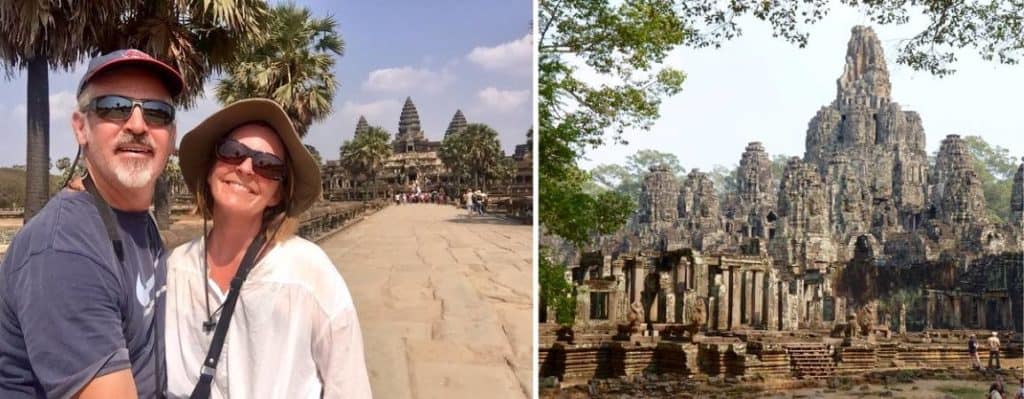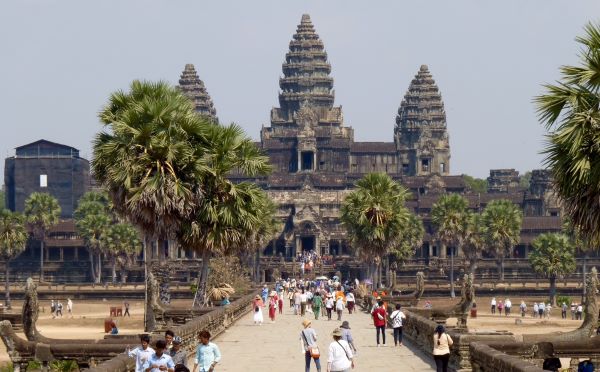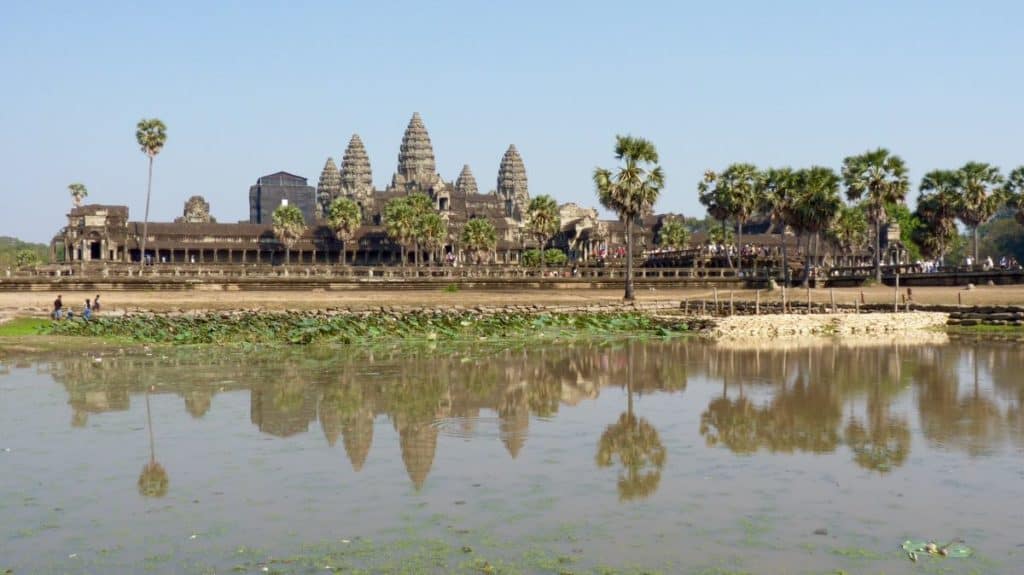Last Updated on October 27, 2024 by Ellen
Authorities in Cambodia have announced a discouraging, new, COVID-19-inspired entry policy for foreign visitors.
Cambodian coronavirus policy for tourists
The text below is taken from the U.S. Embassy in Cambodia website:
On June 10, authorities announced a requirement that all foreign travelers entering Cambodia pay a deposit of $3,000 upon arrival at airports for mandatory COVID-19 testing and potential treatment services. Authorities released a fee schedule for these testing and treatment services. Travelers should be prepared to see this deposit applied to a minimum of $165 for mandatory COVID-19 testing, approximately $1,281 more to support quarantine in the event one or more passengers on their flight test positive, and a minimum of approximately $3,255 more for treatment and quarantine if the traveler tests positive. The Embassy recommends all travelers be prepared upon entry into Cambodia to pay for the full costs identified in the fee schedule.
U.S. State Department Cambodian embassy
Wow! A $3,000 per person DEPOSIT just to visit the country!
I think it is safe to say they have killed their tourism business.
The embassy website also says no e-visas or visas-on-arrival are currently being processed anyway – and only diplomatic, official, or business visas will even be considered. Further, any visitor must also possess a COVID-19 negative medical certificate issued no more than 72 hours prior to the date of travel and have proof of medical insurance coverage of at least $50,000.

What does this mean for us retired budget travelers?
We’ve been to Cambodia. Angkor Wat is one of the most incredible historical sites on the planet. But I would never consider giving thousands of dollars in deposits to the Cambodian government (or any government), trust their testing, or risk monetary loss and weeks of quarantine because someone else on my plane tested positive for COVID-19.
Even more concerning to us, than this specific announcement by Cambodia, is that other nations could do the same thing. Good grief! Our lifestyle vagabonding could become impossible – or at least greatly modified. We might even have to go home! Uhhhgg!
Honestly, thus far, we’ve been in a ‘wait until it is over’ mode. We have ‘paused’ our travels and settled in to this apartment near Boracay, Philippines. And we intend to resume our global meandering when the pandemic passes. Sadly, the Cambodian announcement throws everything into question. My head is spinning.
Of course, I can understand why a country like Cambodia would implement such rules. It is a very poor country with limited health care resources. They can’t be providing health services for outsiders – nor risk exposure of their population. In fact, Cambodia has only reported 126 total COVID-19 cases (1 active). No doubt they weighed the pros and cons of such a ‘tourist unfriendly’ policy. And at least for now, this is the route the nation is taking.
In actuality, this ‘self-pay’ model is not completely new. We are aware that some countries – including the U.S. – have been requiring persons to pay the cost of mandatory quarantines and more. Still, the ‘Cambodian deposit’ approach takes things to another level.
Waiting for the ‘new travel normal’
It really does make one wonder what will or could happen going forward; regarding travel, tourism, and honestly, every other facet of life as we’ve known it. Bottom line, it means we all will have to be even more patient and flexible and ready for whatever post-pandemic life turns out to be.

Finally, we will also continue to hope and pray that either medical breakthrough or natural herd ‘immunity’ will at some point allow things to return to a more familiar state. No doubt, Cambodia will be eager to relax its new procedures to attract tourists again. And we would love to spend more time at Angkor Wat.
As always, be thankful and generous, happy trails, & more beer.
Life is NOW!
Thanks for reading, “Cambodian coronavirus policy for tourists leaves our heads spinning.”
Earth Vagabonds advocate for travel when international borders reopen.
Visit our COVID-19 section to help plan your next trip.
Why travel is so important? We like how Rick Steves explains it in his travel talk: Travel as a Political Act.

